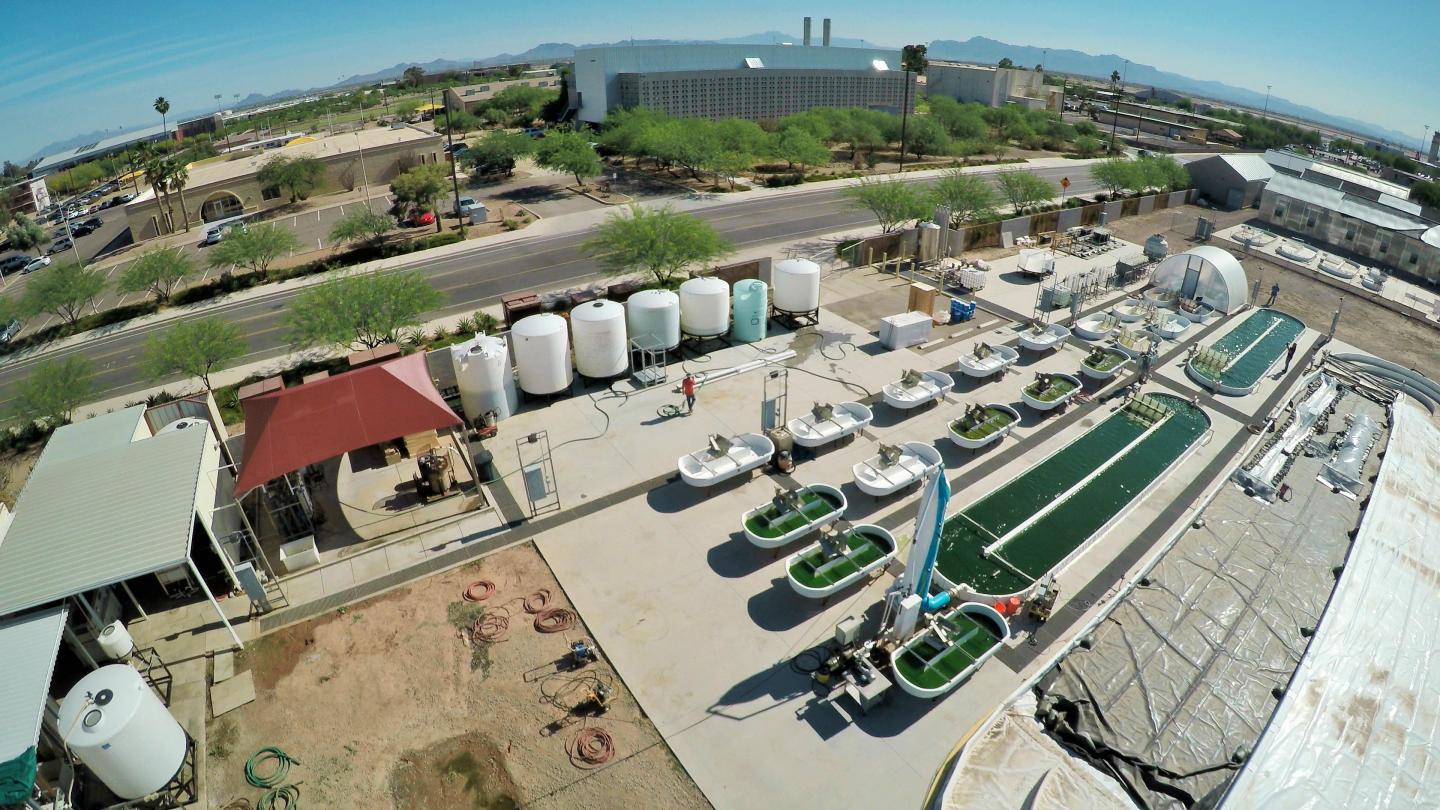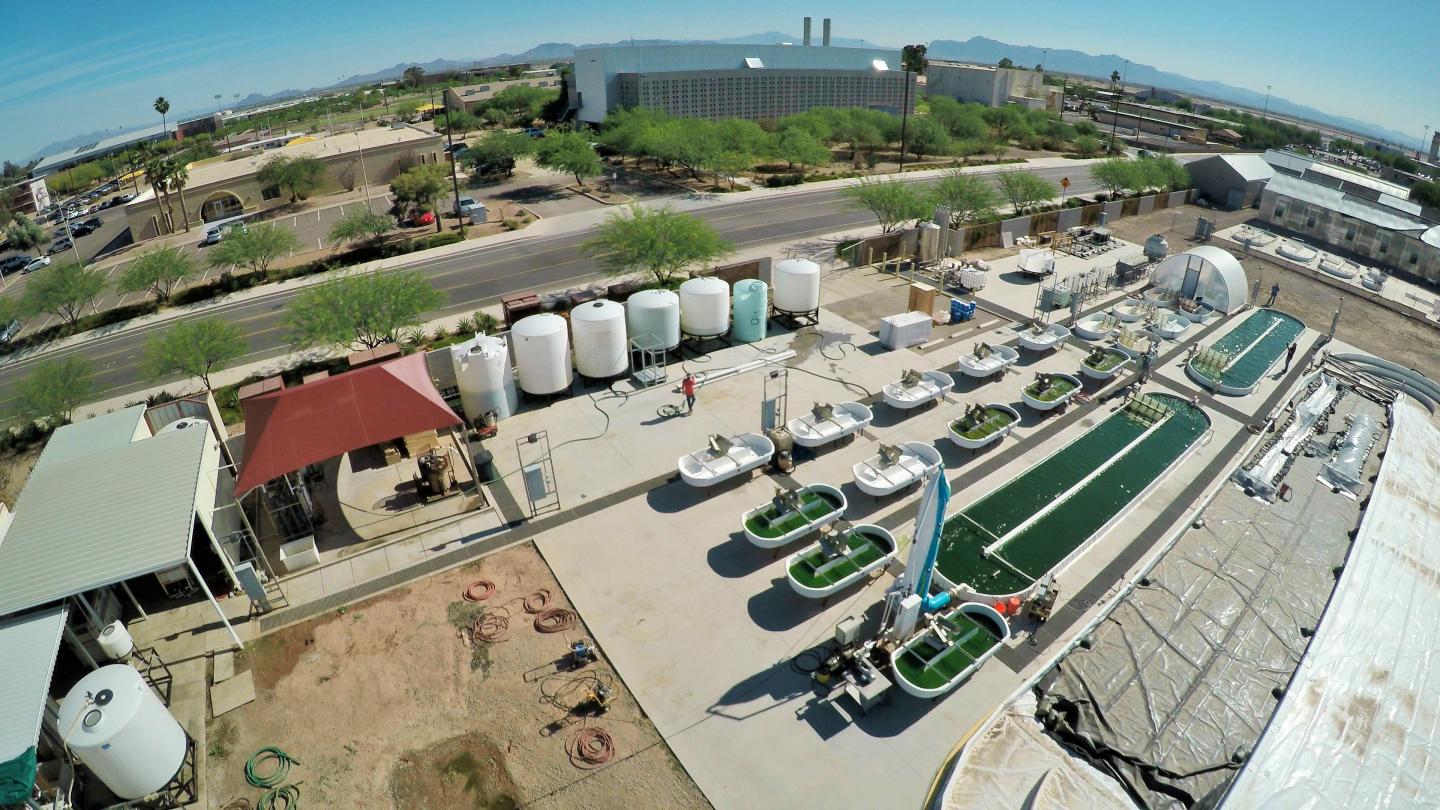
Credit: AzCATI at Arizona State University
Colorado State University scientists are partners in a three-year grant of up to $3.5 million from the Department of Energy, aimed at improving how algae-based biofuels and bioproducts are made.
The Department of Energy's Bioenergy Technologies Office has announced its support for the project, titled "Rewiring Algal Carbon Energetics for Renewables," led by scientists at the National Renewable Energy Laboratory in Golden, Colorado. The funding is part of the federal bioenergy office's Advanced Algal Systems Program, which had previously awarded $15 million in grants to three other projects.
The multidisciplinary team includes CSU's Ken Reardon, professor of chemical and biological engineering; Graham Peers, associate professor of biology; and Jason Quinn, assistant professor of mechanical engineering; along with partners at National Renewable Energy Laboratory, Colorado School of Mines, Arizona State University, Utah State University, and representatives from industry.
The overall project goal set by the Department of Energy is to double the yield of biofuel precursors from algae to about 3,700 gallons per acre per year.
Strategies to be used by the team to meet this goal include increasing algal cultivation productivity, optimizing biomass composition, and extracting and separating different types of algal lipids to reduce the cost of upgrading them to renewable diesel.
"How can we get photosynthetic microorganisms – namely algae – to grow faster, and how can we do better at converting that biomass into fuel intermediates?" Reardon said. "There is a cost piece to it, but the absolute No. 1 target is productivity."
The researchers will use an algae species called Desmodesmus armatus, and will focus on fundamental processes of efficiently channeling carbon dioxide into useful fuel intermediates. A San Diego-based company called Sapphire Energy is a project partner and has pioneered the use of D. armatus for biofuels.
CSU's Peers will lead algae strain development for the project, including novel tools for modifying the D. armatus to maximize its photosynthetic efficiency. His research is in how efficiently algae absorb light and convert that energy to biomass, and how much the process can be improved.
"Algae are among the best organisms in the world at fixing carbon into biomass," Peers said.
His lab will use tools including CRISPR-CAS 9 genome editing to genetically modify the D. armatus and prepare samples for partners at Arizona State to grow and test at larger scales.
"I think the exciting thing about this project is the integration of scales, all the way from strain improvements in our labs to the translation of these changes in outdoor conditions," Peers said. "Our overall goal is to connect all the parts associated with biofuel production."
Reardon has previously worked on several research projects related to converting biomass into a variety of useful products, including fuels. For this project, Reardon's team will work to ferment carbohydrates in the algal cells into chemicals of interest, including ethanol, as well as a fuel precursor called 2,3 butanediol.
Quinn's expertise is in sustainability assessment, specifically life cycle and techno-economic analysis. By integrating the advancements of the other scientists into modeling work, Quinn will allow the team to forecast how strain modifications affect the eventual product's environmental impacts, from start to finish.
Other partners on the project will work on the algae-to-bioproduct life cycle, including modification of growing pond conditions, and separating algal solids from water to remove lipids.
"We're excited to leverage the strengths of all our partners on this important project," said project lead Lieve Laurens, senior scientist at the National Renewable Energy Laboratory. "From building on the work already done by Sapphire with the D. armatus strain to Arizona State University's manipulation of optimal outdoor conditions and Colorado State University's research to improve photosynthesis in the strain and fermentation of the sugars – each team member is playing an integral role."
###
Media Contact
Anne Manning
[email protected]
970-491-7099
@ColoStateNews
Original Source
https://source.colostate.edu/advancing-algae-better-biofuels-csu-shares-3-5-million-project/





